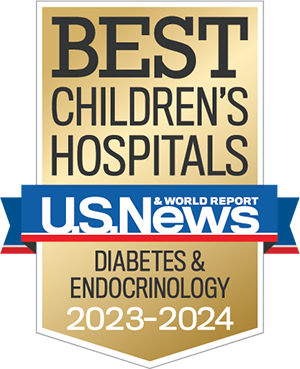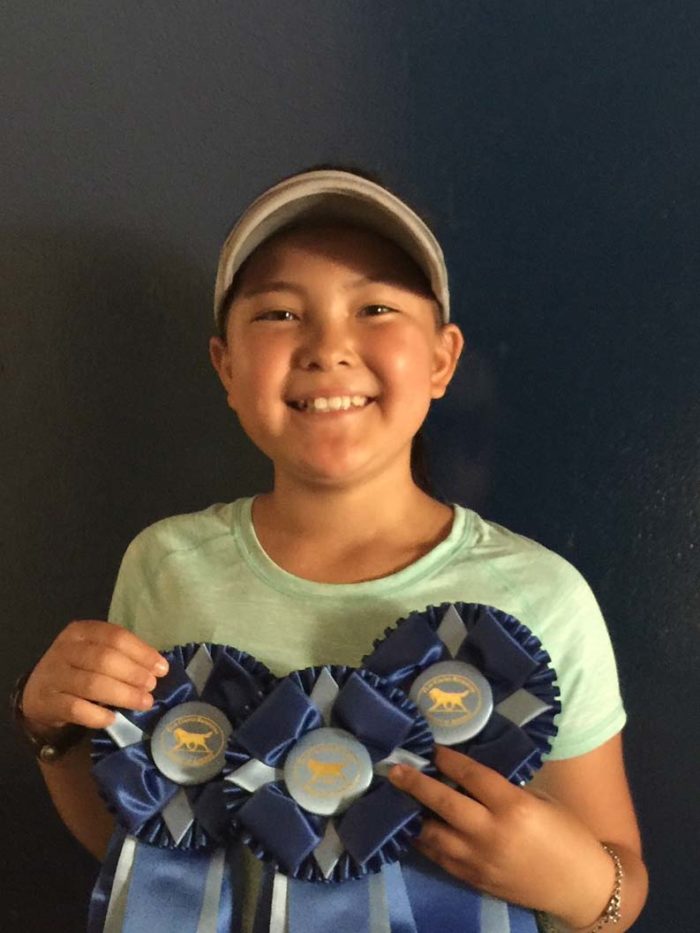Type 1 Diabetes
Call today to schedule an appointment with one of our pediatric specialists.
Endocrinology Referrals
View the referral guidelines
Being diagnosed with type 1 diabetes can be a life-changing event. We understand how overwhelming a new diagnosis of diabetes can be, and we are here to provide our patients and families with the support and care needed throughout your child’s diabetes journey.
At CHOC, we offer the only comprehensive, multidisciplinary diabetes program in Orange County that provides education for the patient and family every step of the way.
What is Type 1 Diabetes?
Type 1 diabetes is a chronic (long-term) autoimmune disease. Insulin producing cells in the pancreas are affected which results in lifelong insulin dependence. Our bodies need insulin to transport sugar (glucose) which is our main source of energy, from the bloodstream into the cells. We get most of our glucose from the food we eat. Without insulin, glucose cannot be transported into the cells where it is needed, causing glucose levels to increase in the bloodstream, otherwise known as hyperglycemia or high blood sugar. If high blood sugar is untreated, it can lead to complications and could be life-threatening.
Because individuals with type 1 diabetes are no longer able to produce enough insulin, their bodies need to be given insulin from other sources, i.e. insulin delivered via injections or insulin pumps.
How do you get type 1 diabetes?
Getting type 1 diabetes is not anyone’s fault. It is not caused from eating or drinking a lot of sugar and it is not something that is contagious.
Experts don’t know the exact cause(s) of type 1 diabetes, but ongoing research suggests that there is likely an inherited tendency or predisposition for developing it along with a multitude of environmental factors. Research continues to look for ways to delay, prevent and ultimately find a cure for diabetes. CHOC’s Endocrine and Research departments are part of many ongoing research projects and clinical trials related to diabetes.
What are the common symptoms?
The symptoms of diabetes are related to the high blood sugar. These symptoms often present suddenly – sometimes resembling a bladder infection or flu-like symptoms in children. The most common symptoms are:
- Unusual increased thirst
- Frequent urination
- Extreme hunger (usually with unintended weight loss)
- Blurred vision
- Nausea and vomiting
- Abdominal pain
- Extreme weakness and fatigue
- Headaches
- Irritability and mood changes
What does CHOC offer for type 1 diabetes?
For newly diagnosed families, CHOC’s multidisciplinary diabetes program provides support and comprehensive education for patients and their families while they are in the hospital. This includes teaching the necessary skills to safely manage diabetes once you go home. Some of these skills include:
- Learning about insulin (types of insulin used, how to adjust doses of insulin and how to give injections)
- Monitoring glucose levels (how to use a glucose meter)
- Healthy food choices (including carbohydrate counting)
- How to manage diabetes with exercise/activity, traveling and at school
- Managing diabetes while sick (learning how prevent and treat high and low blood sugars)
After diagnosed with type 1 diabetes, your child will have close follow-up with many members of our diabetes team. Our team of board-certified endocrinologists and nurse practitioners will meet with your child for your diabetes follow-up clinic visits every 3-4 months. At those visits, you may also see one of the diabetes educators, dietitians, social workers, and/or psychologists.
Our diabetes program also provides ongoing education and resources to help patients and families thrive with diabetes once they leave the hospital.
Meet the Team
Treating endocrine disorders in children and teens can be complex and often requires a team of caregivers. At CHOC, our board-certified endocrinologists understand the specialized expertise and multidisciplinary approach needed to care for endocrine disorders.
CHOC specialists work together as a team to discuss your child’s case and determine the best course of treatment. Depending on your child’s condition, your appointment may include CHOC experts from our many other specialties. Our team also collaborates with psychologists, social workers, dietitians and child life specialists to develop a unique treatment plan for your child.
Our Diabetes Educators
- Allyson McDaniel, BSN, RN, CDCES
- Rachel Sanchez, BSN, RN, CDCES
- Reyna Gamboa-Perez, BSN, RN, CDCES
- Lisa Jenson, BSN, RN, CDCES
- Samantha Thompson, RD, CDCES
- Rebeca Quintana, BSN, RN, CDCES
- Leah Blalock, MS, RD, CDCES
- Claire Vercammen, BSN, RN, CDCES
- Brenda Amador-Rivera, BSN, RN, CDCES
- Megan Huang, MSN, RN
- Katia Torosian, BSN, RN, CDCES
Our Social Workers
- Bobbi McGann, LCSW
Jennifer Blair, MSW, ACSW (Transition Coordinator)
- Erick Renderos, MSW, ACSW
Joshua Letuligasenoa, LCSW
Patient Stories
Diabetes
Managing big life transitions with type 1 diabetes: Q&A with college student Sabrina
With valuable support from CHOC’s Adolescent to Adult Bridge Program (A2B), Sabrina learned how to balance her chronic illness with a busy academic and social…
CHOC Health
Diabetes
‘Type 1 diabetes is a part of who I am’: Hamza’s Story
With help from CHOC, Hamza’s learned how to manage his Type 1 diabetes and still enjoys his favorite foods and activities.
CHOC Health
Diabetes
From CHOC patient to CHOC donor: Katrina’s story
Katrina was treated for type 1 diabetes at CHOC throughout her childhood. Now an adult, she’s fighting to find a cure.
CHOC Health
Coping with chronic illness
Living with Diabetes: One Child’s Perspective
11-year-old Ava has Type 1 diabetes. She shares her experience being diagnosed as a young child & offers tips for kids with Type 1 diabetes.
CHOC Health




